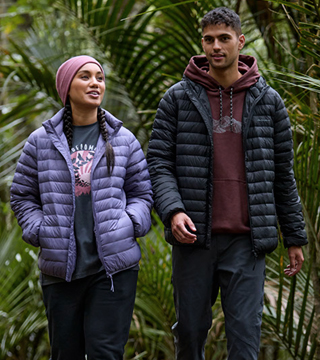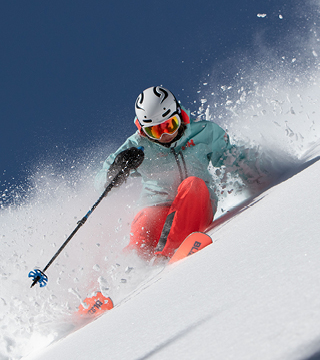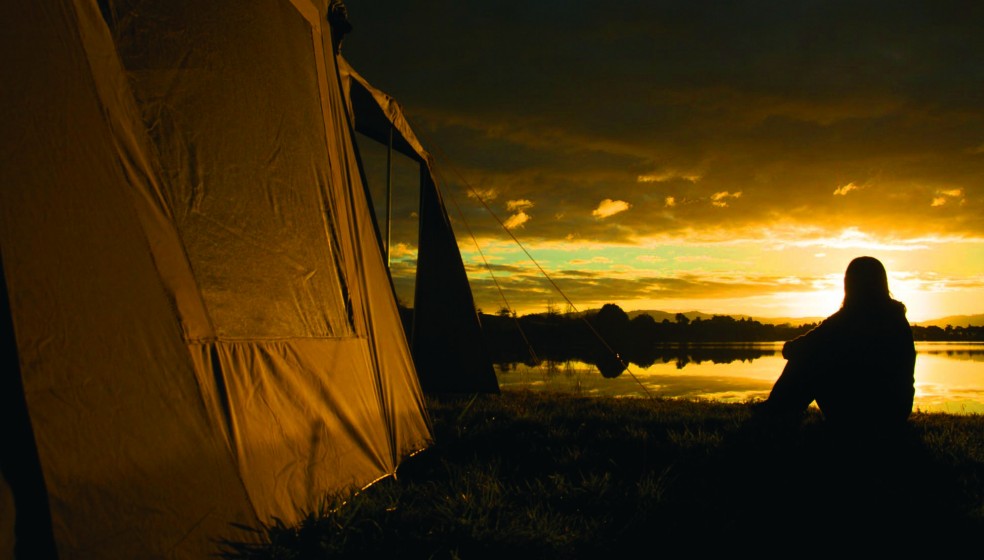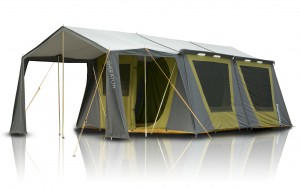Canvas Tent Help Page
Why should I choose a canvas tent and not a dome?
Generally, people buy canvas tents because they are travelling with lots of gear and are setting up camp in one place, or multiple places, but each for a long duration. Large canvas tents can be difficult to put up and take down (especially for the first time when you don’t know how it all works!) and they are heavy and bulky due to the size of the canvas skin and separate steel poles. These factors do not make canvas tents ideal for a backpacking holiday but they outshine dome tents when you need a ‘functional living space’. Canvas tents are designed to be your ‘home away from home’, offering the comforts of plenty of internal space and pleasant living temperatures. They have more vertical walls and higher ceilings than dome tents which make them much more comfortable to be in, and around, for long periods of time. Larger walls and doors mean you no longer have to bend over inside the tent just to stand upright, or crawl through tiny slanted doorways. They are also more breathable during the day and warmer at night than a dome tent, a property of the canvas itself, making them much more enjoyable to live in while on holiday.
Canvas tents also have a number of features which are designed to make living outdoors relaxing and satisfying. Examples can include power cord access and rigging, large awnings, multiple doorways, internally zipped windows, cupboards and accessories, among many others. These features are designed to make living easy and convenient so you can enjoy your holiday; many of these features cannot be incorporated into a dome tent because of the shape or material’ strength. Canvas tents usually have a much longer lifetime than dome tents and this is also reflected by the length of their warranty period. Freedom Camping have a 5 year warranty period on their canvas tent range.
What is Canvas and why do we use it for tents?
Canvas comes from naturally derived fibers, usually either cotton (cotton plant) or linen (woven flax fibers). Other materials can also be used in canvas, as canvas refers to the type of weave as well as the material that makes up the weave. As such, many canvases also incorporate polyester into their structure in order to play off the benefits of the different materials (i.e., polyester provides better UV protection, strength and reduced water absorption). Most canvas tents use a mixture of cotton and polyester in their material. Between different camping brands, canvas tents commonly differ in the relative mixture of materials they use, and the thicknesses of the canvas weave itself. A thicker canvas will be stronger than the thinner alternative, but it will also be more expensive, heavier and bulkier to pack up. Consequently, there is always a tradeoff between the durability, weight, and price.
The canvas which incorporates polyester and cotton is termed ‘poly-cotton’ canvas. The cotton absorbs water and swells, closing the small spaces in the material caused by overlapping the fibers in the weave and the needle and thread holes in the stitching of the seams; this makes the material waterproof. The polyester does not absorb water; instead it remains lightweight, even while the fabric is wet, and provides the majority of the structural integrity to the canvas. Freedom Camping canvas is made using a ratio of 65% polyester and 35% cotton which provides the perfect balance between waterproofness and breathability. Freedom Camping canvas is also dual treated and the most waterproof and UV resistant canvas in the market.
Canvas is an extremely heavy duty fabric that is very resistant to abrasion. With the addition of other fibers and treatments it is also windproof, heavily waterproof and UV resistant, and is commonly used in garments or products when sturdiness is required. Other examples of canvases include backpacks, footwear, sails, and some industrial workplace clothing. Each Freedom canvas tent is exposed to arduous wind and rain testing. A whopping 450 mm of rain is dropped on each model per hour – that is the equivalent of 2 ½ months of New Zealand’s average annual rainfall every hour! Due to poly-cotton canvas’s exceptional durability, it is a great material to use in large tents which have flatter walls and ceilings, exposing them to lots of UV, and the stresses of wind and heavy rain.
How to choose a canvas tent?
There are three main questions when choosing a tent:
1) What type of activity do I need a tent for?
If you are going on an extended family holiday, you plan to stay in one spot at a time for a reasonably long duration (minimum of a couple of days), or you plan on taking lots of gear or you are going to be living in and around your tent while away, then a canvas tent is likely a good choice for you. If you are not spending much time in a single location, you need to erect and dismantle often, or you are carrying your tent yourself, then a dome tent will be better suited to your needs.
2) How many people do I need to house?
If you are going on holiday with lots of people, with a family, or if there are couples amongst your group, then a canvas tent is likely a better choice. Canvas tents are made to have plenty of internal space with wide doorways, near vertical walls and multiple entries and exits. This makes the flow in and out of the tent a lot more pleasant for larger groups, or with people who like their own privacy. If you have a smaller group of people, it could be good to go with a dome tent. Domes are easier for the kids to lend a hand putting up as they are not as heavy as canvas tents. The same goes for smaller groups, less hands makes canvas tents a real hassle to erect and take down safely so a dome may be better suited. However, if you value livable space and want separate sleeping, cooking, or storage areas, then you can’t go past the comfort of a spacious canvas tent.
3) How much space have I got for transporting the tent(s)?
Canvas tents, especially the bigger ones, are large, heavy and awkward to move around with. If you are going on holiday with a boat or trailer then transporting a canvas tent becomes much easier. If you only have the trunk of your car, a canvas tent will take up the bulk of your car storage space and the travel could quickly become very cramped for everyone in the car. If you are looking at a getting canvas tent, make sure you have ample space in your vehicle to transport it, which normally means owning a truck (or comparably large vehicle) or having a trailer.
Tailor your tent choice to the above factors as a guide but also to what you think you might enjoy most. If you like to enjoy more simplistic camping while on holiday then a dome tent is likely going to be a better choice for you, regardless of the activity you are doing, how many people you have, or how much gear you are taking. Canvas tents really come into their element when you want or need more space or more comfortable living. Canvas tents are a luxurious option, but they can also be very practical for those who require strength, stability, comfort, longevity and/or reliability.
Tips for care and storage
- Poly-cotton canvas requires ‘pre-wetting’ to waterproof the tent before use.
- Always put your tent away clean and dry before long term storage.
- Store in a warm, dry location out of direct sunlight.
- Make sure windows and doors are unzipped, pegs removed and guy ropes detached before storage.
- Never spray insecticides or other harsh chemicals directly onto the canvas surface as this may damage the treatments.
- Do not erect your tent for long periods of time unnecessarily as extended exposure to UV can damage the canvas.
- Make sure guy ropes are used at all times when tent is erected.
- Never pitch a tent in high winds or when storms are expected.
- To clean your tent, hose down with plain water or wipe down with warm water. Do not use cleaning agents other than those specified for use on canvas tents.


















